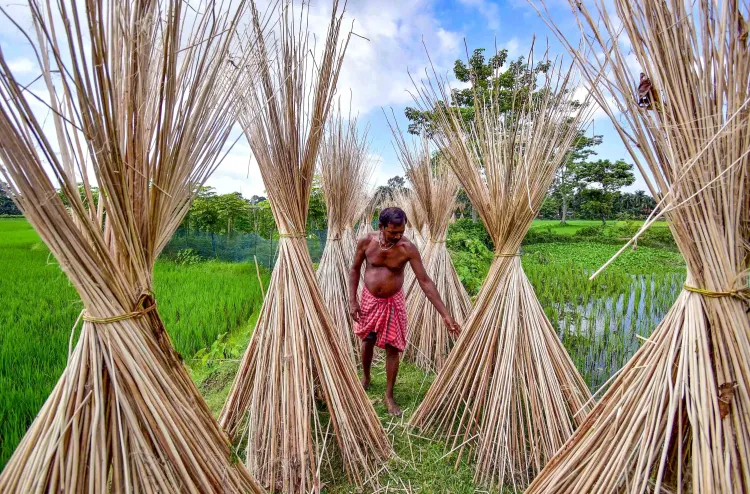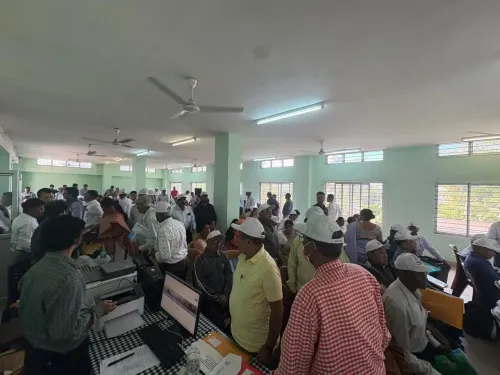Has India Banned More Imports from Bangladesh?

Synopsis
Key Takeaways
- India has banned more jute products from Bangladesh.
- Import restrictions now apply to various textile goods.
- Goods can only enter through specific Indian seaports.
- Trade worth $770 million is at risk due to these bans.
- This move reflects escalating tensions between the two nations.
New Delhi, Aug 12 (NationPress) In a significant escalation of trade tensions, India has widened the scope of its import ban on Bangladesh by adding more jute products to the prohibited list, coinciding with the ongoing strain in bilateral relations.
The newly banned items, effective immediately, include both bleached and unbleached woven fabrics crafted from jute or similar textile bast fibers; jute-based twine, cordage, and ropes; as well as jute-made sacks and bags.
These products will not be permitted entry through any Land Customs Stations or Integrated Check Posts located in Assam, Meghalaya, Tripura, and Mizoram, alongside LCS Changrabandha and Fulbari in West Bengal.
The notification from the Director General of Foreign Trade specifies that the importation of these goods is only permissible via Navi Mumbai's Nhava Sheva Seaport.
Furthermore, the restrictions do not apply to Bangladesh’s exports to Nepal or Bhutan, with a clear stipulation against the re-export of the mentioned goods from Nepal or Bhutan back to India.
Previously, on June 27, a notification was released detailing several other goods from Bangladesh that would face regulation, including flax tow, jute, and various textile products.
Additionally, on May 17, India imposed a ban on the import of goods such as readymade garments and processed food from Bangladesh through cross-border trade points, affecting an estimated $770 million (approximately ₹6,600 crore) worth of goods.
The readymade garments, valued at $618 million (around ₹5,290 crore), are now subjected to strict routing restrictions via only two Indian seaports, significantly hindering Bangladesh’s primary export route to India.
Other barred products include fruit-flavored carbonated drinks, processed foods, cotton and its waste, plastic goods, and wooden furniture, with a total estimated value of $153 million (about ₹1,310 crore).
The directive indicates that all types of readymade garments from Bangladesh cannot enter through any land port, though they are allowed via Nhava Sheva and Kolkata seaports.
This Indian action follows Bangladesh’s April decision to restrict yarn imports from India through land ports as per the National Board of Revenue’s notification.
In earlier actions, India also canceled the trans-shipment privilege for Bangladesh, which had facilitated its exports to other nations via Indian ports and airports.
Currently, India stands as Bangladesh’s second-largest trading partner after China, with trade amounting to approximately $16 billion in the fiscal year 2022-23.
Bangladesh imported goods worth around $14 billion, while its exports to India reached $2 billion, according to industry reports.









